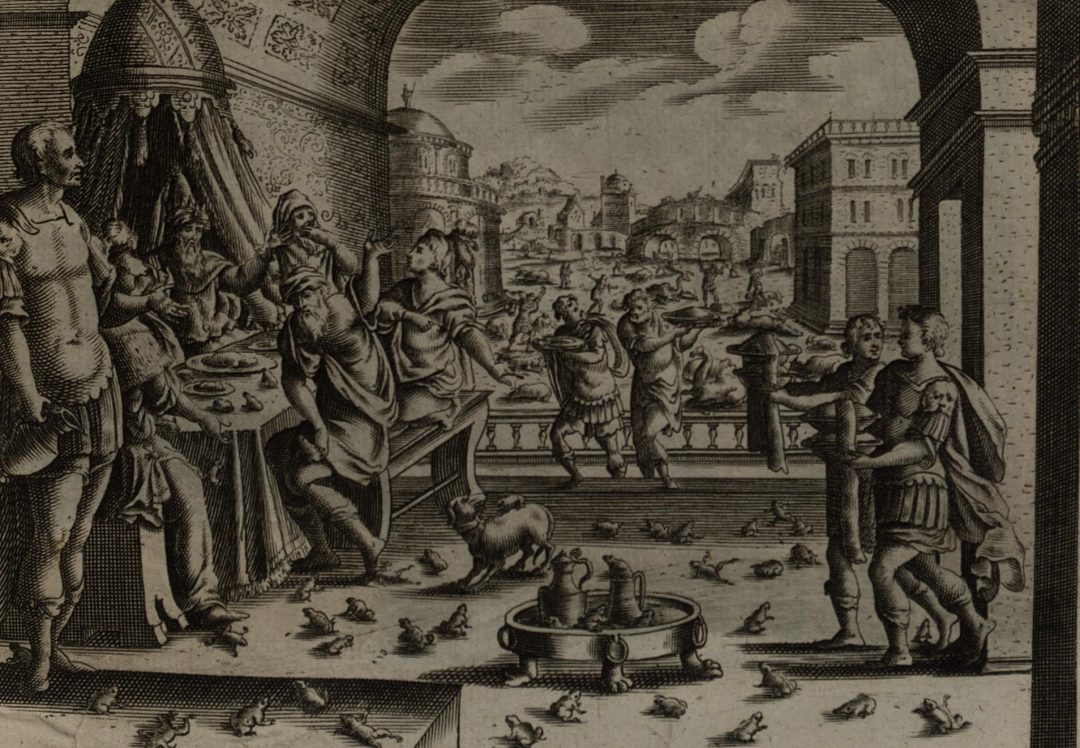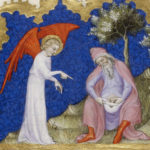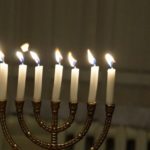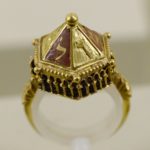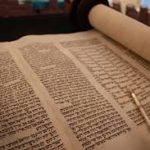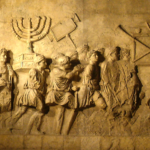The following commentary on “Parashah Bo” (Exodus 10:1-13:16) deals with the last three of the Ten Plagues. For the first seven plagues, see commentary on “Parashah Va’era”.
“ADONAI said to Moshe, ‘Go to Pharaoh, for I have made him and his servants hardhearted so that I can demonstrate these signs of mine among them so that you can tell your son and grandson about what I did to Egypt and about my signs that I demonstrated among them, and so that you will all know that I am ADONAI.'” Exodus 10:1-2. “Bo” is translated as “go” in English, and is taken from God’s command to Moshe, sending him back to Pharaoh at the beginning of this parashah. Note specifically how God tells Moshe that he is the one who has made Pharaoh’s heart hard, and why. This connection will be pointed out in summary.
A first point in studying this passage is that virtually every occurrence in the narrative happens for clearly God-ordained reasons. After Moshe arrives, Pharaoh himself echoes the thought and tells him “Bo” – “Go, worship ADONAI your God” – but, in doing so, Pharaoh is compelled to admit openly that God will be with them if he does let them go! Pharaoh next tries to negotiate with God – but God uses it as the occasion for locusts to destroy what was left by the previous plague of hail, bringing more glory to himself and more woe to Egypt! Then, after the locusts get through with Pharaoh’s country, he has the gall to contact Moshe and Aharon again (as if he plans to listen to anything they have to say) – after literally driving them out, here he comes hurrying to summon them – but again he is compelled to make a key admission. “I have sinned against ADONAI your God and against you. Now, therefore, please forgive my sin just this once; and intercede with ADONAI your God.” And then he hardens his heart again – and there is darkness for three days and nights in Egypt, but not over the area the people of Israel lived.
Problems with Pharaoh
I see two big problems with Pharaoh here. First of all, is he not wise enough to realize that he had just tossed Moshe and Aharon out on their ear, and now he calls them back? Second of all, he thinks that he only needs to be forgiven once – just this once. “Please forgive my sin just this once; and intercede with ADONAI your God.” I hope none of us are so clueless.
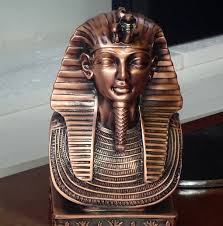 God has certainly been involved all this time, as he said originally – “I have made him and his servants hardhearted” – and repeatedly within this parashah. But Pharaoh rejects the request to go worship, in spite of the pleadings of his servants. Pharaoh instead keeps trying to negotiate with God. First, he says, “Go …. but …. just the men among you.” Then he says, “Go, worship ADONAI; only leave your flocks and herds behind – your children may go with you.” Moshe responds, “Our livestock will also go with us – not a hoof will be left behind – because … we don’t know which ones we will need to worship ADONAI until we get there.” Pharaoh’s negotiation, and unwillingness to meet God on his terms, breaks down. He finally says “Bo” again, with an ultimatum: “And you had better not see my face again, because the day you see my face, you will die!”
God has certainly been involved all this time, as he said originally – “I have made him and his servants hardhearted” – and repeatedly within this parashah. But Pharaoh rejects the request to go worship, in spite of the pleadings of his servants. Pharaoh instead keeps trying to negotiate with God. First, he says, “Go …. but …. just the men among you.” Then he says, “Go, worship ADONAI; only leave your flocks and herds behind – your children may go with you.” Moshe responds, “Our livestock will also go with us – not a hoof will be left behind – because … we don’t know which ones we will need to worship ADONAI until we get there.” Pharaoh’s negotiation, and unwillingness to meet God on his terms, breaks down. He finally says “Bo” again, with an ultimatum: “And you had better not see my face again, because the day you see my face, you will die!”
Then Moshe replies, “Well spoken! I will see your face no more.” Before Pharaoh, that takes significant boldness and growth for Moshe to say. Formerly Moshe wanted Aharon to do all the speaking for him, and made every excuse he could think of to get out of following God’s call; now he is boldly proclaiming God’s word to Pharaoh under threat of death. Now that is a work of grace, an Act of God!
In the meantime, God has said to Moshe, “One more plague … he will let you leave here… He will throw you out completely!” And he has told Moshe something seemingly strange on the surface. “Tell the people that every man is to ask his neighbor and every woman her neighbor for gold and silver jewelry.” Just as ADONAI had hardened Pharaoh’s heart, he now softens the hearts of the Egyptian people and makes them favorably disposed to this request, thus paying the Hebrews their proper earnings due to their being unjustly enslaved.
Finally, there comes the horrible plague of the firstborn of the land of Egypt. Moshe had told Pharaoh about this plague just before he departed, and had predicted, “All your servants will come down to me, prostrate themselves before me and say, ‘Get out! – you and all the people who follow you!’ and after that, I will go out!” He left furious. But verse 10 clinches Pharaoh’s response: “Moshe and Aharon did all these wonders before Pharaoh, but ADONAI had made Pharaoh hardhearted, and he didn’t let the people of Isra’el leave his land.”
Death of Firstborn
At midnight ADONAI kills all the firstborn of Egypt, from Pharaoh’s son to all the firstborn of the livestock. Not a household of the Egyptians is spared. The Egyptians had highly regarded their firstborn, like many cultures; in fact, every plague has been a demolition of something that the Egyptians idolized. But God sets aside the firstborn of the Israelites, protecting them from destruction.
It is with this plague that Pharaoh summons Moshe and Isra’el and says, “Get out of here! But bless me, too.” The Egyptians press on Pharaoh to send them quickly. As famously remembered, the Israelites take their dough before it can get leavened, and they travel from Ra’amses to Sukkot, baking unleavened bread from the dough they had brought out of Egypt. God uses this occurrence to command Moshe how the Passover is to be celebrated annually.
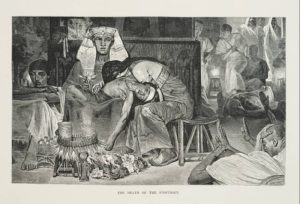 But what strikes me most, in the Torah and the related Haftarah passage in Jeremiah, is throughout the whole ordeal, God announces that he himself is causing Pharaoh’s downfall. Jeremiah 46:15-16: “Why has your strong one been overthrown? He failed to stand because ADONAI pushed him down. He caused many to trip; yes, they fell all over each other.” Later in the Haftarah, God himself states, “I will punish Amon from No, Pharaoh, and Egypt with her gods and kings – that is, Pharaoh and those who trust in him.” God is the one who handed Pharaoh over to the conquerers, once more, because of Pharaoh’s pride and arrogance. The plain sense of “gods and kings” makes it clear that the Pharaoh considered himself a god, and the leaders (those who trusted him) considered themselves as kings. However, they both showed themselves to be set up for destruction.
But what strikes me most, in the Torah and the related Haftarah passage in Jeremiah, is throughout the whole ordeal, God announces that he himself is causing Pharaoh’s downfall. Jeremiah 46:15-16: “Why has your strong one been overthrown? He failed to stand because ADONAI pushed him down. He caused many to trip; yes, they fell all over each other.” Later in the Haftarah, God himself states, “I will punish Amon from No, Pharaoh, and Egypt with her gods and kings – that is, Pharaoh and those who trust in him.” God is the one who handed Pharaoh over to the conquerers, once more, because of Pharaoh’s pride and arrogance. The plain sense of “gods and kings” makes it clear that the Pharaoh considered himself a god, and the leaders (those who trusted him) considered themselves as kings. However, they both showed themselves to be set up for destruction.
Knowing that God is sovereign over the fate of Pharaoh, it is appropriate to conclude with the rabbinical-era commentary found in Romans 9:14-22, to which I need to add nothing more:
“So are we to say, ‘It is unjust for God to do this’? Heaven forbid! For to Moshe he says, ‘I will have mercy on whom I have mercy, and I will pity whom I pity.’ [Ex. 33:19.] Thus it doesn’t depend on human desires or efforts, but on God, who has mercy. For the Tanakh says to Pharaoh, ‘It is for this very reason that I raised you up so that in connection with you I might demonstrate my power so that my name might be known throughout the world.’ [Ex. 9:16.] So then, he has mercy on whom he wants, and he hardens whom he wants.
“But you will say to me, ‘Then why does he still find fault with us? After all, who resists his will?’ Who are you, a mere human being, to talk back to God? “Will what is formed say to him who formed it, ‘Why did you make me this way?'” [Is. 29:16, 45:9.] Or has the potter no right to make from a given lump of clay this pot for honorable use and that one for dishonorable? Now what if God, even though he was quite willing to demonstrate his anger and make known his power, patiently put up with people who deserved punishment and were ripe for destruction? What if he did this in order to make known the riches of his glory to those who are the objects of his mercy, whom he prepared in advance for glory – that is, to us, whom he called not only from among the Jews but also from among the Gentiles?”

